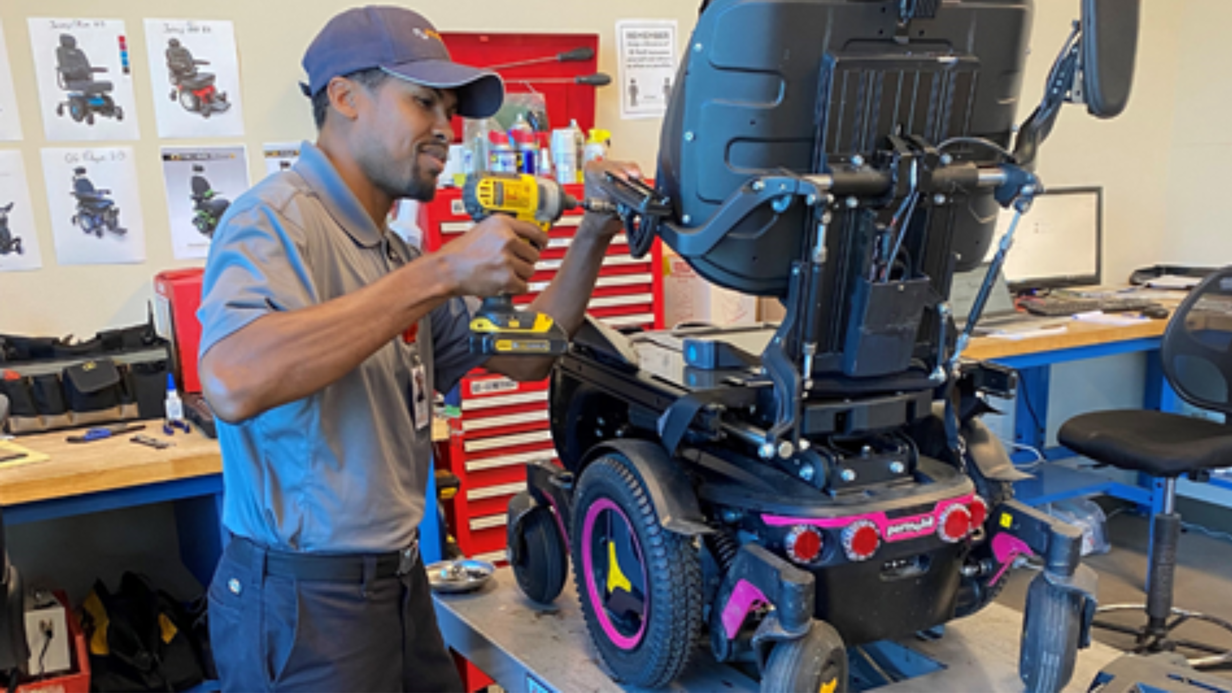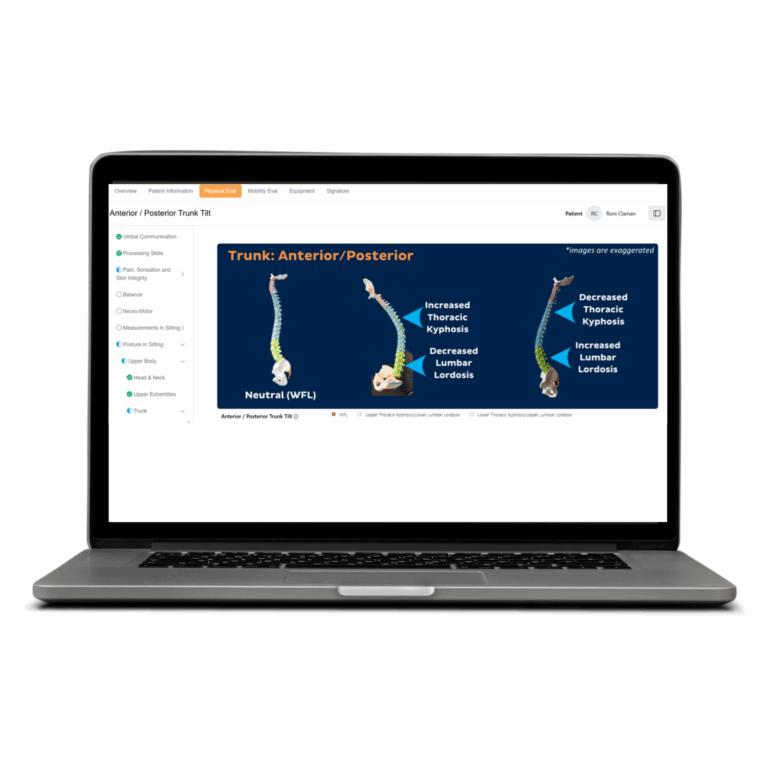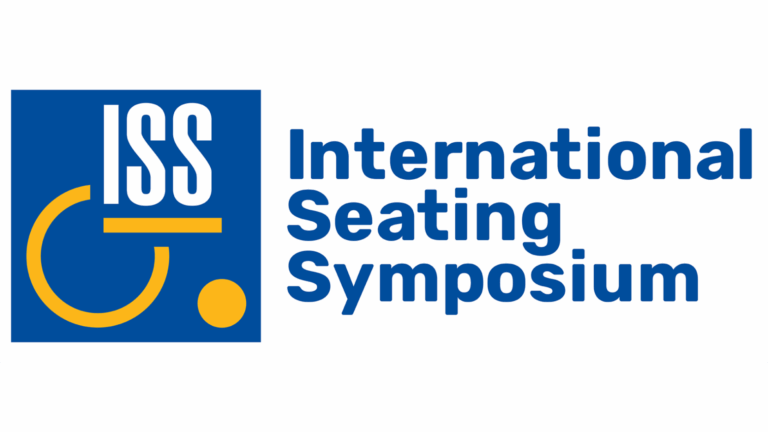In the early days, the field of Assistive Technology, particularly Complex Rehabilitation Technology (CRT), grew up around us with little structure and with a real sense of pioneering. Like all new fields, the time came when structures needed be put in to place to facilitate consistent professional standards and behavior.
Recognizing that a certification was needed, in the 1990’s, the Assistive Technology (AT) professional organization RESNA (Rehabilitation Engineering and Assistive Technology Society of North America), developed an AT credential obtained by passing a credentialing exam. This exam can be taken by individuals who pass certain stringent qualifications. This certifies that the holder of the credential has a broad-based knowledge in assistive technology. An additional specialty credential called the SMS (Seating and Mobility Specialist) is now also available through RESNA.
The processes and outcomes of the interventions of our clinical teams matter – we are interacting with human beings in ways that impact their functional and physical status. These relations have real world ramifications. RESNA Standards of Practice and Code of Ethics include fundamental concepts and rules for those providing complex rehabilitation technology services and equipment, and these standards form an umbrella over every decision from evaluation to delivery and throughout the provision processes. Let’s take a look at a few of the more critical standards and how an ATP should best manage to them.
RESNA Standard # 2: Individuals shall engage in only those services that are within the scope of their competence, their level of education, experience and training, and shall recognize the limitations imposed by the extent of their personal skills and knowledge in any professional area.
Scenario: You have never seen a client with a certain diagnosis. You are really not sure what impairments this disease results in, and if they are more static or progressive. That might be easy enough to look up, but you have to be able to provide seating and mobility interventions that will work for this person. You have never seen anyone whose needs appear so complex.
Response: Understanding what your abilities are and are not have a direct impact on the client. Reaching out to others who have experience in any given area when you do not is always a good idea. It is not possible to know everything about all diagnoses and conditions, but it is possible to recognize and act when you lack knowledge or skill in a certain area. We need to keep our pride in check and recognize our own limitations. We must not allow either to distract us from the health and function of the individuals we serve. There are also alternatives to referring to another ATP, such as enlisting the support of an experienced and trusted manufacturer’s rep, and making them an integral part of the evaluation process and delivery as needed.
RESNA Code of Ethics #5: Seek deserved and reasonable remuneration for service.
Scenario: Many times, clients request, and perhaps need, items that are not otherwise funded by their insurance provider. Nearly all of us got into this field to make a difference and impact client’s lives. However, what happens when you provide equipment routinely at no charge, for free? Under Medicare, the client can never get the “free” equipment repaired—it was not billed, and therefore does not exist in the eyes of Medicare. More broadly, it creates unrealistic expectations on the part of the consumer and de- values the worth of services and products on the part of the consumer and the funding source. How can we simultaneously ask for funders to change their policies to cover non-covered items or pay appropriately when we allow them to be provided for free? Lastly, from a compliance standpoint, it can be viewed as an inappropriate inducement to the referral source, client and their family.
Response: Nobody likes being the bearer of challenging news, especially when we are in front of a referral source that may be accustomed to having things done a certain way. ATP’s must be experts in funding just as much as they are experts in seating and mobility.
When you gain the respect of the referral source as the funding expert, it will be easier for them to trust your explanation of why certain items are not covered by insurance and what options are available to the client to enable the best equipment solution.
Upfront and honest communication with the customer is paramount as well. This is where the ATP needs to be knowledgeable and transparent as to the parameters around each funding source’s coverage, and to let their customers know when an item is not covered. These can be difficult, complex and emotional conversations. This does not mean that it is unobtainable but rather opens up the discussion for self-pay or other alternative financing options through third parties.
RESNA Standard #12: Individuals shall provide technology that minimizes consumers’ exposure to unreasonable risk. Individuals shall provide adjustments, instructions or necessary modifications that minimize risk.
Scenario: Equipment does little good for our clients if it is not adjusted and fitted properly, and if education is not provided on its use. At best, the equipment will be abandoned because it is not meeting goals, and at worst the client can be harmed. Imagine that a complex powered wheelchair has been recommended for a client with moderate to severe muscle weakness, such as a client with SMA. It is delivered and fitted, but no one checks the programming on the chair. The client takes it outdoors and quickly discovers that the “braking” is set to be too abrupt. It causes the clients head to fall forward- and the client has a difficult time bringing it upright again.
Response: These types of issues need to be addressed during evaluation and through the use of trial equipment. The bulk of the education comes during the fitting. The clinical team is obligated to ensure that the equipment fits and is adjusted to the client, that the client can safely function with it, and that the client and any other relevant people understand operating and care instructions.
There is a team involved, and the ATP has a responsibility to own the outcome of the equipment provided. It must also be understood that the delivery deserves the same level of attention to detail as was given on the front end. When possible, and certainly for very complex clients, the same team that prescribed and specified the product should be providing delivery and/or follow-up. In some less complex deliveries the ATP may not need to be involved at all, in others, the ATP may just need to follow up after delivery. The bottom line is the ATP involved in the evaluation is responsible for communicating the desired outcomes.
These are just a few examples of how the Code of Ethics and Standards of Practice exist to ultimately protect the client and facilitate a functional match between the equipment and the client; all involved in the clinical team have an obligation to ensure they are upheld. They provide the practitioner, client and funding source with the moral guide of those things to which the ATP is held accountable and provides the foundation for trusting partnerships.
We, as ATP’s, are by nature, advocates. We are advocating for our clients – to get them the equipment they need to live functionally and with dignity. We may have to make an extra effort to assist with a 1st or 2nd level appeal in order to provide the best outcome. We may need go to our managers and request increased support in order stay current with our workload.
We must advocate for the funding source as well, and we do this by educating our referral sources and physicians on the expectations of clear and consistent medical justification. We may have to take the high road, and instead of jumping in on the conversation about how “insurance companies just don’t get it”, we must inform everyone involved that it is our job to help them “get it.” We advocate for our company by communicating best practices, training and educating clients and referral sources on the products we believe will provide the best outcomes. We advocate for the industry by joining in with organizations like NRRTS and NCART and enlisting the support of referral sources and clients to be active in engaging the legislative process. We advocate for the public by spending Medicare and insurance dollars wisely and demonstrating to them the difference we as CRT professionals make in the lives of people with disabilities.
In light of the varying and often seemingly conflicting expectations coming at us, it is admittedly difficult to find the balance, but it is most definitely able to be done, and most certainly a rewarding endeavor.
If you are unfamiliar with the standard for ATPs, here are the specifics as designated by the respective organizations:
RESNA Code of Ethics
- Hold paramount the welfare of persons served professionally.
- Practice only in their area(s) of competence and maintain high standards.
- Maintain the confidentiality of privileged information.
- Engage in no conduct that constitutes a conflict of interest or that adversely reflects on the association and, more broadly, on professional practice.
- Seek deserved and reasonable remuneration for services.
- Inform and educate the public on rehabilitation/assistive technology and its applications.
- Issue public statements in an objective and truthful manner.
- Comply with the laws and policies that guide professional practice.
RESNA Standards of Practice
- Provide competent, timely, high-quality equipment and services to meet the physiological and functional needs, as well as the goals, of the consumer.
- Strive to recognize when the physiological, functional or technical needs of the consumer are beyond the capabilities of the NRRTS Registrant (RRTS®) and inform the consumer of the need for additional assessment and/or intervention. The NRRTS Registrant, RRTS®, will assist the consumer in identifying medical professional(s) or other rehabilitation technology supplier(s) who can meet the consumer’s needs.
- Present the consumer with complete information on the choices of available equipment, pricing, funding options, and the consumer’s financial responsibility.
- Explain fully the consumer’s rights and responsibilities, including the right to work with a supplier of his/her choice.
- Notify the consumer of the NRRTS complaint resolution procedure.
- Accept the responsibility to expand and improve professional knowledge and skills so the consumer receives the most appropriate technology and service available.
- Do everything necessary to provide high-quality equipment, ongoing support and long-term service.
- Abide by all applicable federal and local laws.
- Respect the confidentiality of information pertaining to individual consumers and disclose such information only with proper authorization or as required by law.
- Serve all consumers equally regardless of race, creed, gender, sexual orientation or reason of disability.

author
Desmond Wiles
ATP/SMS, CRTS
Desmond Wiles, ATP/SMS, CRTS, is a Seating & Mobility Specialist at Numotion providing complex rehab equipment at a large rehabilitation hospital in Seattle, WA. He first entered the world of CRT in 2000, working six years for a small manufacturing company of seating and positioning product prior to beginning his career as an ATP. His passion for enabling others to perform their best is most tangible when the fruit of his work results in a functional and independent person living life with and through the custom mobility equipment provided by his team of clinicians and coworkers. Desmond is RESNA certified, a NRRTS member, and regularly advocates for his clients and industry through ongoing support of groups and agencies such as NCART and the ALS Association.
Resources
www.resna.org, for more information on the ATP and SMS credential
www.NRRTS.org, for more information on the NRRTS organization and CRTS credential



